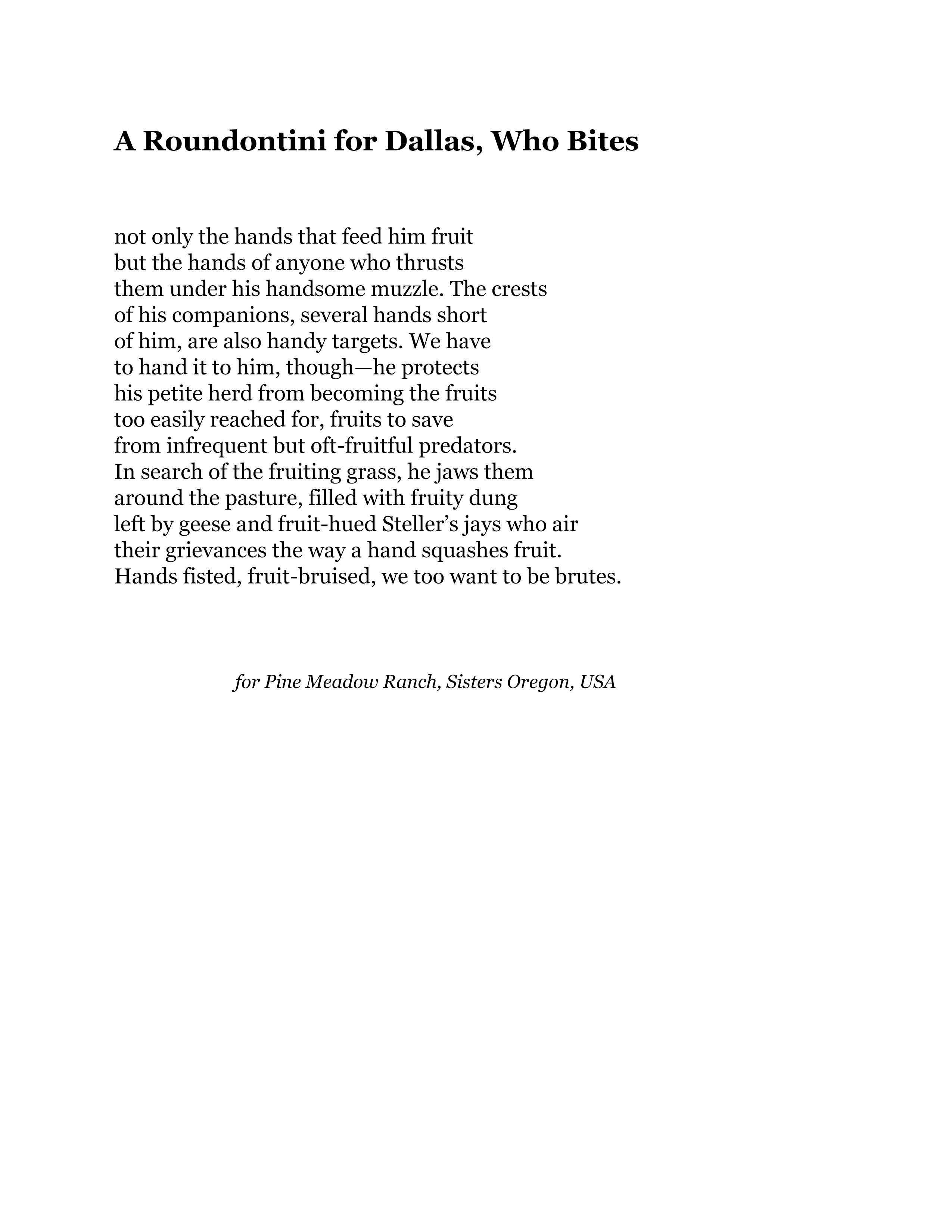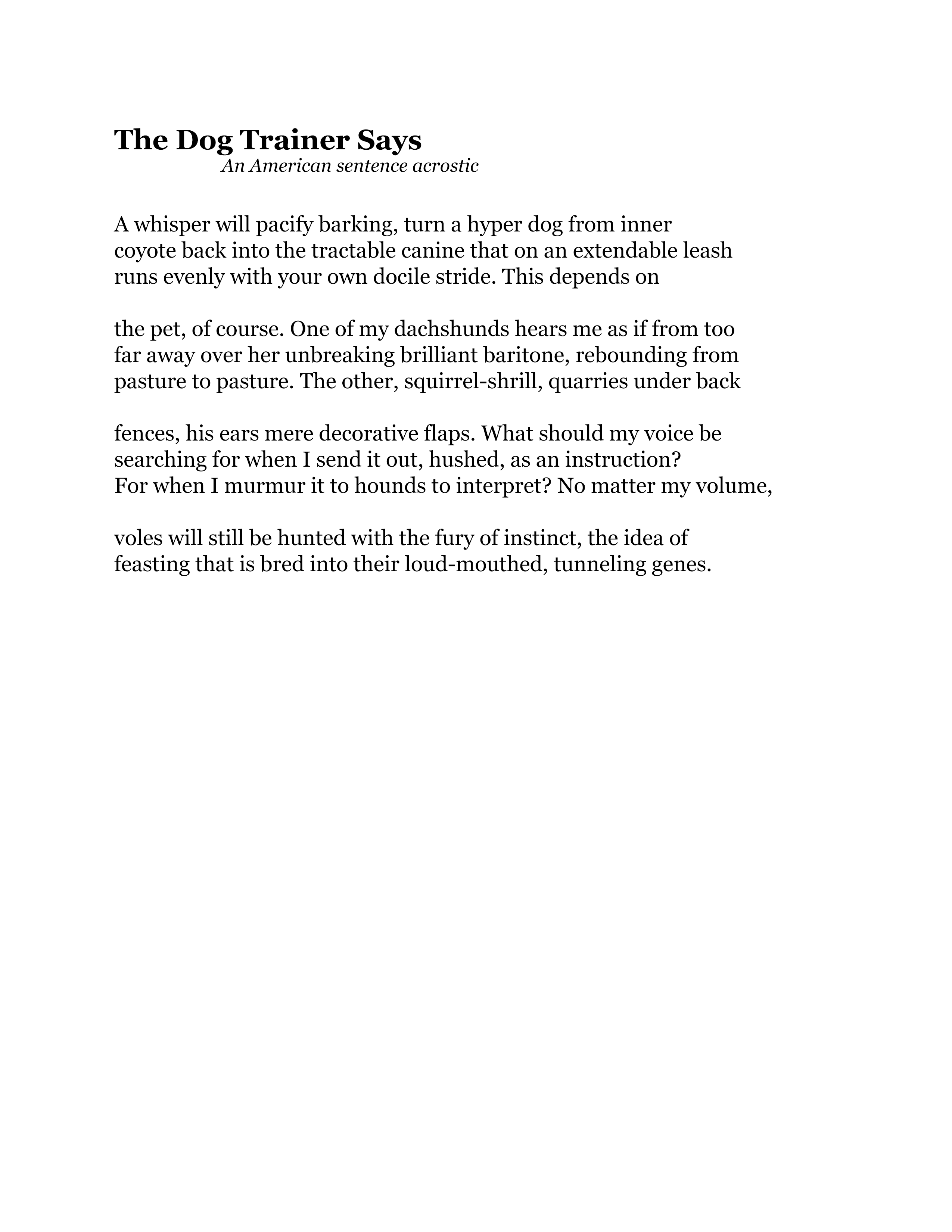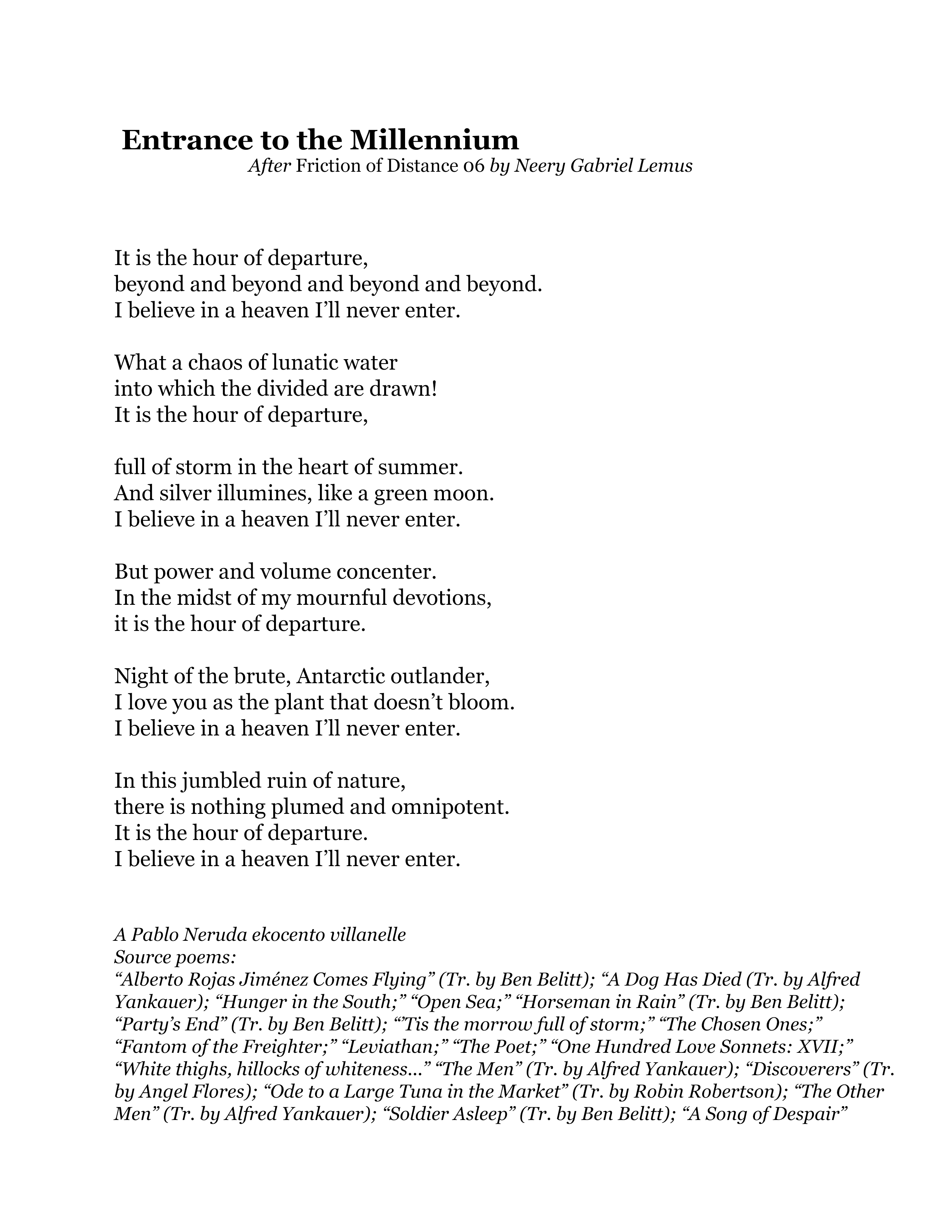3 poems by Jen Karetnick
1 essay by Molly Spencer, on the poems of Jen Karetnick
We, too, want to be brutes.
a meditative five-paragraph theme
The poet and undertaker, Thomas Lynch, writes: “Among the highest and best uses of poetry, third only perhaps to the poxing of our enemies and the commemoration of our dead, is the wooing, outright, of our beloved ones.”[1] With trepidation—for Lynch is wiser than I—I’d add a fourth: the preservation of our humanness. And, although every dictionary defines brute or creature as something distinct from a human being, I believe we are more in touch with our humanness when we are also in touch with our creatureliness; when we know—as these poems know—that “we, too, want to be brutes.”
Dear Dallas, who bites: I, too, am sometimes snippy; I, too, tend to nip most easily at those nearest by. O, other dachshund, whose ears are “mere decorative flaps,” I get you: with all there is to sniff out in this life—pastures, fences—why must we stop at the sound of a (dare I say it: mere) voice? When the “jumbled ruin of nature” beckons, why shouldn’t we go where it lures us?
I had a long and sumptuous childhood as a brute, “beyond and beyond and beyond and beyond” the street where I lived. I spent hours, days, whole seasons wandering the woodlands behind my house. Spying on birds, collecting stones, walking through willows and grasses in the dip beneath Jericho Hill to Davies’s farm, where, Dallas, I could pet a horse and smell his yeasty breath. Roaming, I watched the sky: clear, or clouds, or summer haze. Ate wild fruit, tasted its sweet sharpness, stained my fingers with its juice. Studied the jeweled beetles. Considered the ancient lichen. Befriended the trees and climbed them quick. Looked out, as if on a queendom. Smelled, suddenly, “a storm in the heart of summer.” Looked toward home, doubtful a second; carried on.
True, there was a house to go back to, and I’d shed my brute-skin at the edge of the meadow where the lawn began, become a girl again. There, a hot meal waited—no need to hunt for sustenance—and a hot bath, too. But always I felt I’d lost something at the edge of the meadow where my brute-skin lay, waiting for me till morning. And as an adult, I have tried to hang onto whatever creatureliness I can amid meetings and teaching plans; errands and bills; appointments and meal-prep. As I walk my neighborhood with my dog, I listen for the swifts and the wrens; I see the Pitcher’s thistle has gone to seed; I smell the towering white pine. My childhood as a brute trained me for listening, noticing, sensing. In this way, my brute-life trained me for poetry. In this way, my brute-life trained me to be human—an “earthly being,” according to the word’s etymology.[2]
These poems, fierce in their noticing of creatures and not-blooming plants and dung and instinct and jays—even a green moon!—keep me human by reminding me of the marvels of brute-hood. That there are wonders to be had if we (occasionally, at least) live and roam and sniff and taste and spy and tunnel like (mere! mere?) brutes. That we can be in closer touch with our world and each other if we remember our creatureliness and tend to it, as these poems do. In the name of Dallas, and dachshunds, and the ruin of nature, Amen+.
_____________________________
[1] Lynch, Thomas, “A Note on ‘A Note on the Rapture to His True Love,” Poetry East, #43, date unknown.
[2] “human,” Etymonline, https://www.etymonline.com/search?q=human, accessed 08/13/2025.



